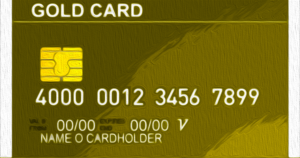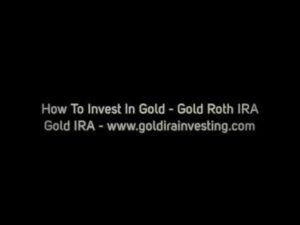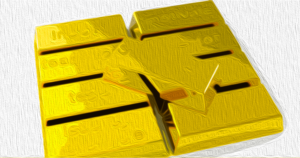
Introduction
Japan is currently exploring the idea of exempting corporations from paying income taxes on unrealized gains related to their cryptocurrency holdings. This proposal, which is part of a broader tax code reform, aims to allow companies to avoid taxation on cryptocurrencies, even if their market value fluctuates throughout the fiscal year.
Japanese Government Plans to Stop Taxation on Unrealized Cryptocurrency Gains
The Japanese government is planning to revamp its tax code to create a more favorable environment for companies that hold cryptocurrencies for the long term. As part of the 2024 tax reform, policymakers are considering a new provision that would eliminate taxation on unrealized gains from cryptocurrency holdings by corporations.
Currently, Japan taxes corporations for their cryptocurrency holdings based on the market prices at the beginning and end of each fiscal year. This approach has faced criticism for its negative impact on companies that hold these assets. If approved, the proposed measure would enable companies to bring their crypto holdings from foreign countries, such as Singapore, Dubai, and Switzerland, to Japan without incurring additional taxes. However, this would also result in a loss of tax revenue for the Japanese government, the exact impact of which is yet to be determined.
It is important to note that this exemption would only apply to cryptocurrencies held as part of a company's assets and would not cover those used for short-term trading purposes, as clarified by Nikkei Japan.
Japan Blockchain Association Advocates for Tax Reform
The Japan Blockchain Association has been actively pushing for these changes since June, highlighting how the current tax regime hampers the growth of Web3 in the country and contributes to market instability. Under the existing system, companies are often forced to sell a portion of their cryptocurrency holdings to generate the necessary funds for tax payments.
Japan has been progressively addressing cryptocurrency taxation issues. In June, the country abolished taxes on cryptocurrencies issued by companies themselves. Previously, companies had to pay taxes on unrealized gains from such self-issued cryptocurrencies. This move has opened up opportunities for companies to issue or hold these currencies without the burden of additional taxes.
What's Next for Japan's Cryptocurrency Tax Regime?
The potential change in Japan's cryptocurrency tax regime is a significant development that could have far-reaching implications for the industry. By exempting corporations from taxing unrealized gains on their cryptocurrency holdings, the government aims to create a more favorable environment for companies and encourage the growth of the cryptocurrency sector within the country.
What are your thoughts on this proposed change in Japan's cryptocurrency tax regime? Share your opinions in the comments section below.
Frequently Asked Questions
What is a gold IRA account?
People who wish to invest in precious metals can use Gold Ira accounts as a tax-free investment vehicle.
You can purchase physical bullion gold coins at any point in time. You don't have a retirement date to invest in gold.
An IRA allows you to keep your gold forever. You won't have to pay taxes on your gold investments when you die.
Your heirs can inherit your gold and avoid capital gains taxes. You don't need to include your gold in your final estate report, as it isn't part of the estate.
To open a gold IRA, you will first need to create an individual retirement account (IRA). Once you've completed this step, an IRA administrator will be appointed to your account. This company acts as a mediator between you, the IRS.
Your gold IRA custodian will handle the paperwork and submit the necessary forms to the IRS. This includes filing annual reports.
Once your gold IRA is established, you can purchase gold bullion coins. The minimum deposit required for gold bullion coins purchase is $1,000 If you make more, however, you will get a higher interest rate.
Taxes will apply to gold that you take out of an IRA. If you take out the whole amount, you'll be subject to income taxes as well as a 10 percent penalty.
A small percentage may mean that you don't have to pay taxes. There are exceptions. However, there are exceptions. If you take 30% or more of your total IRA asset, you'll owe federal Income Taxes plus a 20% penalty.
You should avoid taking out more than 50% of your total IRA assets yearly. You'll be facing severe financial consequences if you do.
Should you Invest In Gold For Retirement?
The answer will depend on how many dollars you have saved so far and whether you had gold as an investment option at the time. If you are unsure which option to choose, consider investing in both options.
Not only is it a safe investment but gold can also provide potential returns. It is a good choice for retirees.
Most investments have fixed returns, but gold's volatility is what makes it unique. This causes its value to fluctuate over time.
However, this does not mean that gold should be avoided. This just means you need to account for fluctuations in your overall portfolio.
Another advantage of gold is its tangible nature. Unlike stocks and bonds, gold is easier to store. It can be easily transported.
Your gold will always be accessible as long you keep it in a safe place. Physical gold is not subject to storage fees.
Investing in gold can help protect against inflation. Because gold prices tend to rise along with other commodities, it's a good way to hedge against rising costs.
It's also a good idea to have a portion your savings invested in something which isn't losing value. Gold usually rises when stocks fall.
Investing in gold has another advantage: you can sell it anytime you want. You can easily liquidate your investment, just as with stocks. It doesn't matter if you are retiring.
If you do decide to invest in gold, make sure to diversify your holdings. You shouldn't try to put all of your eggs into one basket.
You shouldn't buy too little at once. Start small, buying only a few ounces. You can add more as you need.
Don't expect to be rich overnight. It's not to get rich quickly, but to accumulate enough wealth to no longer need Social Security benefits.
Although gold might not be the right investment for everyone it could make a great addition in any retirement plan.
How to Open a Precious Metal IRA?
The first step is to decide if you want an Individual Retirement Account (IRA). Open the account by filling out Form 8606. To determine which type of IRA you qualify for, you will need to fill out Form 5204. This form should be filled within 60 calendar days of opening the account. After this, you are ready to start investing. You can also choose to pay your salary directly by making a payroll deduction.
For a Roth IRA you will need to complete Form 8903. The process for an ordinary IRA will not be affected.
To be eligible for a precious metals IRA, you will need to meet certain requirements. The IRS says you must be 18 years old and have earned income. You cannot earn more than $110,000 annually ($220,000 if married filing jointly) in any one tax year. Additionally, you must make regular contributions. These rules apply to contributions made directly or through employer sponsorship.
A precious metals IRA can be used to invest in palladium or platinum, gold, silver, palladium or rhodium. However, you won't be able purchase physical bullion. This means you won’t be able to trade stocks and bonds.
To invest directly in precious metals companies, you can also use precious metals IRA. This option can be provided by some IRA companies.
There are two major drawbacks to investing via an IRA in precious metals. First, they're not as liquid as stocks or bonds. This makes it harder to sell them when needed. Second, they don't generate dividends like stocks and bonds. Therefore, you will lose money over time and not gain it.
Statistics
- Gold is considered a collectible, and profits from a sale are taxed at a maximum rate of 28 percent. (aarp.org)
- Instead, the economy improved, stocks rebounded, and gold plunged, losing 28 percent of its value in 2013. (aarp.org)
- The price of gold jumped 131 percent from late 2007 to September 2011, when it hit a high of $1,921 an ounce, according to the World Gold Council. (aarp.org)
- This is a 15% margin that has shown no stable direction of growth but fluctuates seemingly at random. (smartasset.com)
- If you accidentally make an improper transaction, the IRS will disallow it and count it as a withdrawal, so you would owe income tax on the item's value and, if you are younger than 59 ½, an additional 10% early withdrawal penalty. (forbes.com)
External Links
bbb.org
forbes.com
- Gold IRA, Add Sparkle to Your Retirement Nest egg
- Understanding China's Evergrande Crisis – Forbes Advisor
cftc.gov
wsj.com
- Saddam Hussein's InvasionHelped Uncage a Bear In 90 – WSJ
- How do you keep your IRA Gold at Home? It's Not Exactly Legal – WSJ
How To
Three Ways to Invest In Gold For Retirement
It is crucial to understand how you can incorporate gold into your retirement plans. You can invest in gold through your 401(k), if you have one at work. You may also want to consider investing in gold outside of your workplace. For example, if you own an IRA (Individual Retirement Account), you could open a custodial account at a brokerage firm such as Fidelity Investments. If precious metals aren't your thing, you may be interested in buying them from a dealer.
These are the three rules to follow if you decide to invest in gold.
- Buy Gold With Your Cash – Do not use credit cards to purchase gold. Instead, put cash into your accounts. This will protect your against inflation and increase your purchasing power.
- Physical Gold Coins: You should own physical gold coins, not just a certificate. Physical gold coins are easier to sell than certificates. Physical gold coins are also free from storage fees.
- Diversify Your Portfolio. – Do not put all your eggs into one basket. By investing in multiple assets, you can spread your wealth. This can reduce market volatility and help you be more flexible.
—————————————————————————————————————————————————————————————-
By: Sergio Goschenko
Title: Japan Considers Exempting Corporations from Taxing Unrealized Cryptocurrency Gains
Sourced From: news.bitcoin.com/japan-mulls-exempting-companies-from-paying-taxes-on-unrealized-cryptocurrency-gains/
Published Date: Sat, 09 Dec 2023 08:30:25 +0000
















